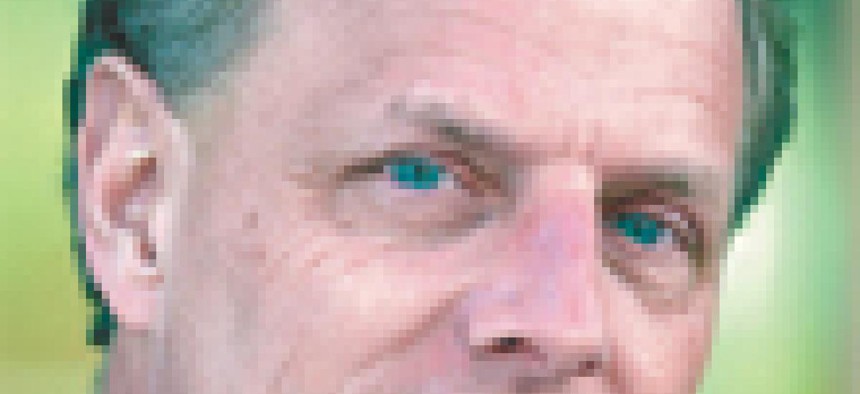Eye on the States: Don't be shy, state executives need your insights

Years ago when I served in a senior capacity with a fast-growing Sunbelt state, I always looked forward to meeting the top technology industry executives who came to town.
Years ago when I served in a senior capacity with a fast-growing Sunbelt state, I always looked forward to meeting the top technology industry executives who came to town. I wasn't as curious about their products and services -- their sales forces did a good job making sure I knew the latest -- as I was about their knowledge of state government. Tom Peters book "In Search of Excellence" was all the rage. (Yes, I can remember that far back.) I was in search of good ideas for making the state an example of a well-managed, well-led organization. I would not let anyone leave my office without sharing with me his or her best insights and recommendations. Soon I was able to differentiate the technology executives based on their ability to engage me in meaningful and candid discussions about what it takes to manage a well-run government technology organization. Those industry executives who rose to the top of their companies by proving themselves in the government market were the ones I valued most. Their knowledge was first hand, deep and highly relevant. I couldn't get enough face time with these executives.I learned more from these executives than from any consultant I ever paid. They were willing to share with me the insights they gained from working side by side with many government organizations. They broadened my understanding of the challenges we faced as a state and the possible approaches I could take. I was reminded of all this recently as I was reading some remarkable testimony before Congress by Greg Pellegrino, global managing director at Deloitte's Public Sector Practice. Here was a top industry executive candidly raising some very difficult technology management subjects and offering some possible solutions. For example, he raised an issue that's thorny with many government executives who like to feel their needs are unique: "How different can government afford to be?" His point was that uniqueness has a cost, and the rationale for spending additional resources for customization when commercial solutions are readily available is growing weaker every day. A second issue was the consequence of adopting a federated model to deploy enterprise solutions. Specifically, giving government executives the responsibility, but not the authority, to produce results is a recipe for further Balkanization, not for best-in-class performance. These are just two of several important issues presented in the testimony. These same messages, along with the corresponding solutions, need to be delivered to top officials in state and local governments. Too many state and local customers want to believe, as I once did, that they can have their cake and eat it, too. They do not appreciate the constraints that exist and, therefore, they are unprepared to make appropriate trade-offs. They also don't understand how many of their policies, such as procurement, may appear to serve their interests in the short term but actually hurt them in the long run. One state chief information officer recently said that to be a business partner, you have to act as a business partner. From where I sit, understanding your customers' business and candidly sharing your knowledge and insights with them is a good place to start. Thomas Davies is senior vice president at Current Analysis Inc. in Sterling, Va. His e-mail address is tdavies@currentanalysis.com.


Thomas Davies
NEXT STORY: Calif. county wants Web buying app